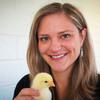Explore all the information on
Poultry management
Poultry management usually refers to the husbandry practices or production techniques that help to maximize the efficiency of production. Sound management practices are very essential to optimize production. Scientific poultry management aims at maximizing returns with minimum investment. A carefully controlled environment that avoids crowding, chilling, overheating, or frightening is almost universal in poultry farming. Cannibalism, which expresses itself as toe picking, feather picking, and tail picking, is controlled by debeaking at one day of age and by other management practices. The feeding, watering, egg gathering, and cleaning operations are highly mechanized. Birds are usually housed in wire cages with two or three animals per cage, depending on the species and breed, and three or four tiers of cages superposed to save space. Cages for egg-laying birds have been found to increase production, lower mortality, reduce cannibalism, lower feeding requirements, reduce diseases and parasites, improve culling, and reduce both space and labour requirements.
Poor leg health in Australian fast growing meat chickens is a major welfare issue, resultant from long-term genetic selection for bird size and growth rate (Bessei 2006). Anecdotal evidence and preliminary data suggest perches may have the potential to improve leg health, decreasing the prevalence of associated leg disorders and lameness (Groves and Muir 2013). The following study sought to assess the potential role of perches in improving leg health in the context of Australia’s fast...
Comments : 1
Recommendations: 0
Providing an optimal light program during pullet rearing and breeder production starts with understanding how chickens are stimulated by light. Light intensity, light coloring and day length all play a major role in preventing or stimulating sexual maturation. Ideal day length for rearing pullets is 8 hours to prevent early sexual development and therefore assure that flocks begin lay and maintain egg production in a more uniform manner....
Comments : 7
Recommendations: 0
France and Germany are now calling on other EU countries to follow their lead in banning the controversial practice of culling male chicks, which both countries have pledged to end from January 2022.
It is “a big step forward” that French citizens have been waiting for for a long time, tweeted French Agriculture Minister Julien Denormandie, announcing the country’s ban on culling male chicks from 2022. Together with Germany, France will thus be “the first...
Comments : 0
Recommendations: 0
What is rendering? Rendering is the process by which the inedible parts (Head, raw fat, hooves, bones, waste trimming, and condemned carcass) which are highly perishable Ingredients are converted into value added; stable, environmental friendly sterilized end products such As ANIMAL FAT, GEL BONES, MBM/POULTRY FEED SUPPLEMENT AND BLOOD MEAL Dry Rendering ...
Comments : 2
Recommendations: 0


FIGAP 2026: The Scientific And Technological Exhibition Of The Livestock Industry
Suggested link
PlusVet Animal Health present the negative effects heat stress layers and breeders on the fertility of layers and breeders....
Comments : 0
Recommendations: 2
1. Introduction Poultry producers started to raise their commercial chickens indoors as of the 1950s for better disease control, protection from predators, and to integrate their management measures for the production of uniform products [1]. Modern breeding plans and conventional raising systems have enabled mankind to produce broiler chickens with more than 2kg body weight in 35 days [2]. Although the selection for higher growth rate and slaughter yield has dramatically...
Comments : 0
Recommendations: 0
The U.S. Department of Agriculture (USDA) today announced $55.2 million in competitive grant funding available through the new Meat and Poultry Inspection Readiness Grant (MPIRG) program. The new program is funded by the Consolidated Appropriations Act of 2021.
“We are building capacity and increasing economic opportunity for small and midsized meat and poultry processors and producers across the country.” Secretary Tom Vilsack said. “Through MPIRG, meat and poultry...
Comments : 0
Recommendations: 0
Mike Czarick (University of Georgia) offered his recommendations when evaluating equipment based on their airflow ratio and energy-efficiency rating, during IPPE 2020 in Atlanta, USA....
Comments : 5
Recommendations: 5


Effective Solutions for Preventing and Treating CRD in Poultry with Natural and Conventional Approaches
Suggested link
The Poultry Research Foundation, in conjunction with WPSA-Australian Branch, cordially invites you to the 33rd Australian Poultry Science Symposium at University of Sydney, Camperdown Campus.
The Australian...
Comments : 0
Recommendations: 0
On-Farm Welfare Assessment: Laying Hens In this newsletter we will provide an overview of animal-based indicators that can be used to assess laying hen welfare on the farm, using measures from the Welfare Quality® Assessment protocol (2009). The...
Comments : 0
Recommendations: 1
.jpg&w=3840&q=75)

Introducing Afla-V ONE: Fast, precise aflatoxin detection for complete feeds and pet foods
Suggested link
I. INTRODUCTION In Bangladesh, duck flock management is practiced using two systems: viz. stationary and nomadic. ‘Nomadic ducks’ are those which scavenge in post-harvest paddy fields during the day and stay in temporary enclosures or tents overnight near the scavenging area (Henning et al., 2012). Stationary or household ducks are kept overnight near the farmer’s house; they travel only over short distances and are often reared by families in subsistence...
Comments : 0
Recommendations: 1
I. INTRODUCTION Feed efficiency (FE) is an important production trait in poultry. A commonly used measure of efficiency is feed conversion ratio (FCR), which is defined as feed intake (FI) per unit of egg mass (EM) in laying hens. It is widely recognised that behaviour is an important aspect of the physiological status of animals (Pennisi, 2005). Feeding behaviour may reflect animal meal habit as a potential predictor of FE (Schwartzkopf-Genswein, 2002). With the help of...
Comments : 0
Recommendations: 1
The National Chicken Council Broiler Research Award recognizes distinctive research work that has a strong economic impact on the broiler industry, primarily on the economic influence the work has had or will have on the industry. It is an annual award.
...
Comments : 0
Recommendations: 1
I. INTRODUCTION
HB trimming is still used worldwide for retrimming birds on farm where required to reduce the risk of or control serious outbreaks of cannibalism and feather pecking. In the review by Glatz (2000) other methods of trimming included a gas beak trimming machine, an electric soldering iron and a cold blade. These methods are only practical to use when retrimming birds on smallholder farms as they are too slow to use on a large number of birds on a...
Comments : 0
Recommendations: 0
I. INTRODUCTION Avian influenza viruses (AIVs), subdivided into Low Pathogenicity Avian Influenza (LPAI) and Highly Pathogenic Avian Influenza (HPAI), are diseases of major concern to domestic chickens worldwide (Hansbro et al., 2010). LPAI is known to circulate naturally in wild birds of the order Anseriformes (waterfowl) and Charadriiformes (shorebirds) and can potentially mutate into HPAI once transmitted to chickens (East et al., 2008). Reducing direct and indirect contact...
Comments : 0
Recommendations: 0
I. INTRODUCTION Flock uniformity is a key performance indicator and economic driver in commercial practice. Hughes et al. (2017) pointed out that Australian losses could exceed AUD$127M per annum, assuming that 5% of throughput totalling 1,159,602 tonnes chicken meat per annum was downgraded by 40% due to out-of-range weight specifications. From these brief comments it is easy to see that flock uniformity in live weight is a very important matter. This raises questions...
Comments : 7
Recommendations: 3
This award recognizes the achievements of PSA members in the early stages of their career in poultry extension. It is given every other year.
Dianna V. Bourassa
Auburn...
Comments : 0
Recommendations: 0
Tracking and understanding hen movement in commercial free-range flocks is challenging due to complex housing furniture as well as the sheer volume of individual data involved. The purpose of this study was to develop interactive visualisation software that allows users to display recorded data and individualise graphs on demand using existing data. A total of ~9,375 laying hens were housed in three identical commercial free range sheds equipped with an open aviary system. Hens were...
Comments : 0
Recommendations: 1
Damaging pecking, or injurious pecking, is a major animal welfare concern. There are various forms of injurious pecking, including injurious feather pecking, feather picking, cannibalism, and aggressive pecking (see Table 1 on page 2). Not all species or breeds of birds perform...
Comments : 0
Recommendations: 0
Ensuring welfare of birds at the farm is key to maintaining a healthy supply of eggs and chicken during the pandemic The COVID-19 pandemic has had a significant impact on various industries, including the poultry and livestock sectors. Livestock prices are...
Comments : 1
Recommendations: 1




















.jpg&w=3840&q=75)











